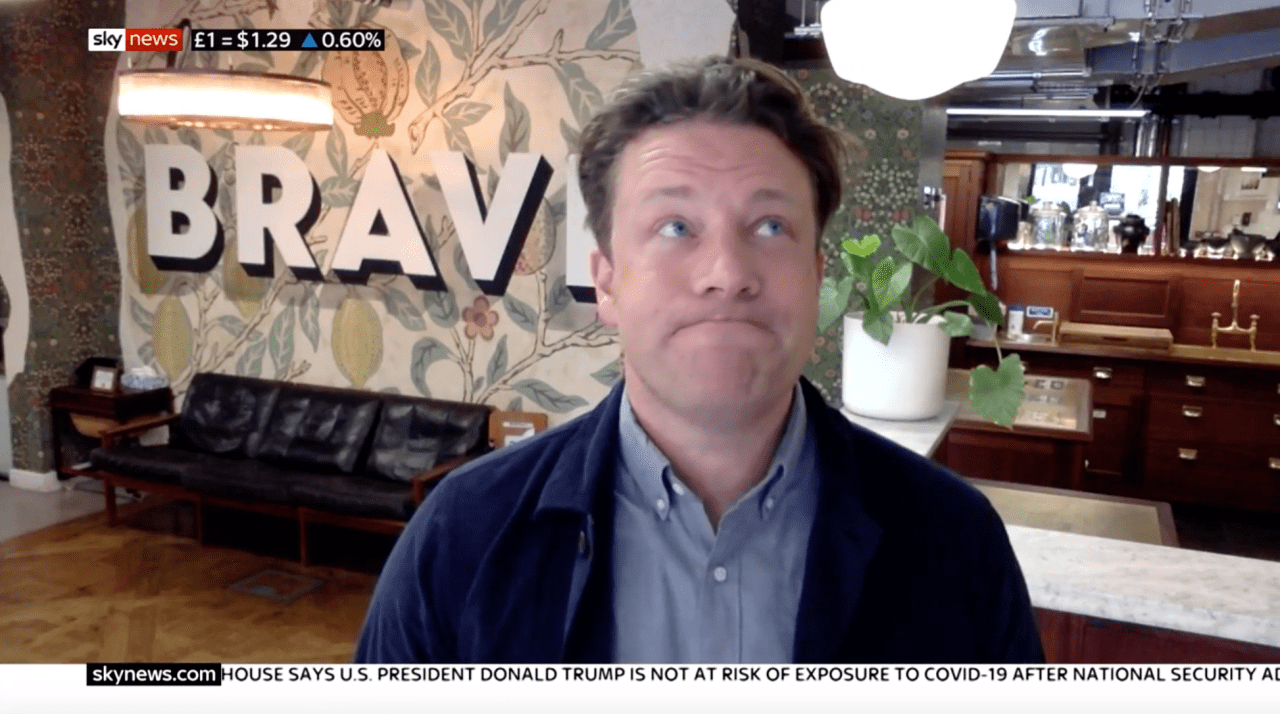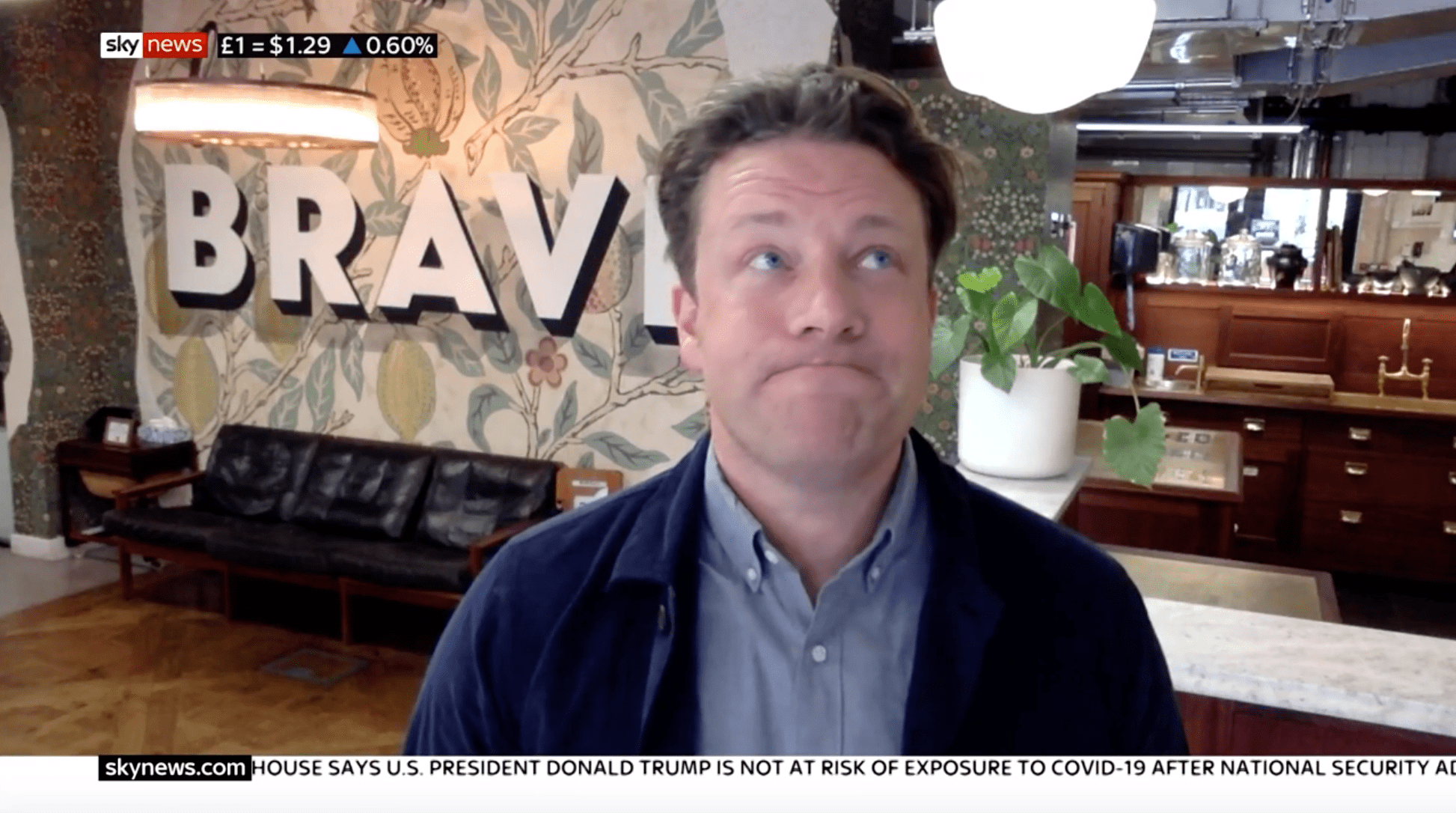There have been a great many political betrayals of late, but there is nothing worse than seeing the government propose a policy that makes Jamie Oliver this happy. The celebrity chef’s face lit up when he appeared on Sky and Channel 4 News this week, as he relished the fact that the government is going to ban all adverts for anything considered to be high-fat, high-salt, and high-sugar on TV before 9pm and online.
Jamie Oliver told Channel 4 News’ Jon Snow that ‘the cost of ill-health in society… is an economic conversation. Having a fitter, healthier, more agile Britain is absolutely more profitable.’
Oliver is certainly one to talk about profitability. In May last year, 22 of his restaurants closed, with the loss of 1,000 jobs. When his establishments ran out of money Oliver’s debts were covered by the taxpayer and suppliers were left out of pocket. He’s still estimated to be worth around £100m personally though. At one of Jamie Oliver’s only remaining restaurants, at Gatwick airport where your choice is heavily restricted, he charges twice as much for kids to have fruit for dessert than a ‘jumbo’ scoop of ice cream laden with chocolate sauce.
As it happens, I am the kind of person that he and Matt Hancock are most worried about. My Instagram is full of food adverts because I love looking at food online. I normally get to see mouth-watering adverts for roast Herdwick lamb from Lake District farmers, delicious English fudge, and cheese from Neal’s Yard. These producers have built their followings from scratch and have worked hard to create businesses that gives customers what they want.
Yet all of these products are under threat from the government’s plan. Under the current proposals, a new nutrient profile will assess whether a food is ‘good’ or high in fat, salt or sugar, in which case it will fall foul of the censors.
So too, presumably, would fish and chips, melton mowbray pork pies, and stilton and cheddar cheese. So too would campaign photos of MPs and ministers going out to their local pubs after lockdown, or the Chancellor delivering a Wagamama’s katsu curry to unsuspecting punters as part of his Eat Out to Help Out campaign.
Even the foods that Jamie Oliver gives his personal seal of approval to would possibly fall foul of the ban. The olive oil and the jars of pasta sauce he sells in supermarkets up and down the country are not going to be safe from the all-seeing eye of the advert censors.
The businesses that make the adverts I see are run by people that love their produce, love their jobs, and are often protecting their local heritage. They deserve better than to be blocked from advertising their wares to new markets because of a crusade pushed by a celebrity chef.
In return, what do we get? Health Secretary Matt Hancock says it’ll mean Britons losing 5lbs and saving the NHS £100m over five years. Considering the NHS budget is going to be over £140bn this year it’s absolutely paltry. On top of that of course is the lost revenue to broadcasters, of around £200m a year — which means fewer shows showcasing Britain’s talents around the world, and an entertainment industry that has been hit hard by this virus smacked down again.
What’s awful about all this is that Boris was meant to be different. He was meant to be the antidote to the joyless, patrician, robotic political class that had sucked the life out of society. He was the man who bounded with unbridled joy, who got stuck on zip wires, who joked and joshed his way across the nation’s TV screens, and in column after column lambasted the nannies in public health and the ninnies who never stood up to them.
It turns out though that the public were deceived. No matter who the British people vote for, no matter which politician takes over, Public Health England always seems to win.
Ignore the nannies. Eat out to help out. Get the restaurant sector back on its feet and let our food speak for itself. But please, for goodness’ sake, don’t step foot in Jamie Oliver’s last restaurant in London. Don’t watch his shows and stop visiting his website. Otherwise he’ll continue making money while trying to shut down choice for everyone else.







Comments